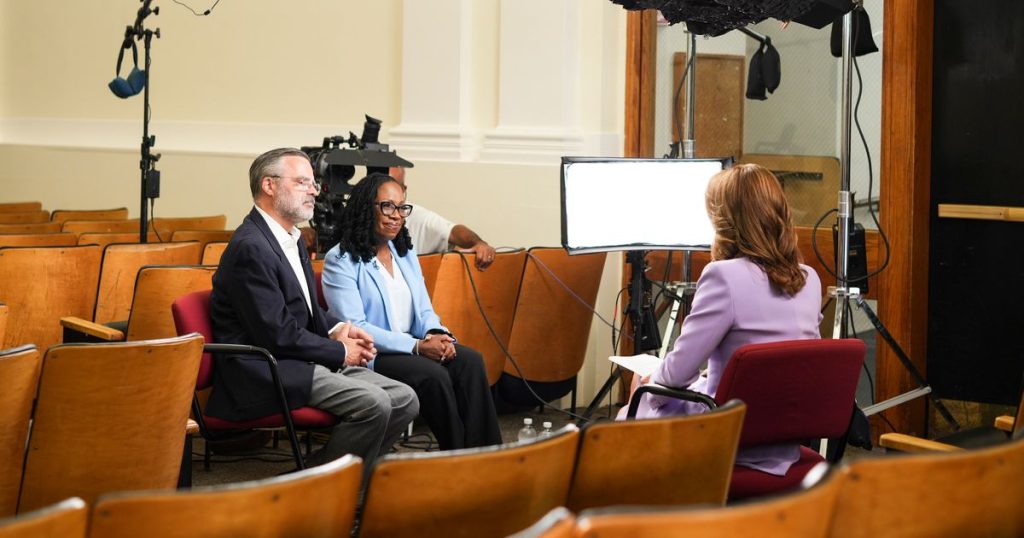In a recent interview with “CBS News Sunday Morning,” Supreme Court Justice Jackson discussed the need for a binding code of ethics for judges, questioning whether the Supreme Court should be any different from other courts in this regard. Jackson stated that she has not seen a compelling reason why the Supreme Court should not have a code of ethics like other courts and mentioned that she is open to supporting an enforcement mechanism for such a code. She emphasized that she did not have any objections to having an enforceable code of ethics for judges.
Jackson’s remarks on the need for a binding code of ethics come as she prepares for the release of her memoir, “Lovely One,” which is set to be published on Tuesday. This interview with CBS marks her first broadcast appearance since joining the Supreme Court in June 2022. During the interview, Jackson did not comment on specific policy proposals but expressed her general support for an enforceable code of ethics for judges. The full interview with Jackson is set to air on Thursday at 8:30 p.m.
The discussion around implementing a binding code of ethics for judges raises important questions about accountability and transparency within the judicial system. While judges are typically held to high ethical standards, there is no universal standard for enforcing these ethics across all courts. Jackson’s comments suggest that she sees value in having a consistent and enforceable code of ethics for judges, including those serving on the Supreme Court.
The Supreme Court, as the highest judicial body in the United States, plays a crucial role in interpreting the law and ensuring justice is served. Given its significant influence, having a clear and enforceable code of ethics for Supreme Court justices could help maintain public trust in the judiciary. Jackson’s openness to supporting an enforcement mechanism for a code of ethics signals a commitment to upholding ethical standards and accountability within the judiciary.
As Jackson continues to settle into her role on the Supreme Court, her willingness to discuss and advocate for a binding code of ethics reflects a commitment to promoting transparency and accountability within the judicial system. By engaging in discussions about ethical standards for judges, including those on the highest court in the land, Jackson is contributing to ongoing conversations about how to ensure the integrity and effectiveness of the judiciary. Her remarks highlight the importance of upholding ethical standards and promoting public trust in the justice system.
Overall, Justice Jackson’s comments on the need for a binding code of ethics for judges, including those on the Supreme Court, underscore the importance of maintaining ethical standards and accountability within the judiciary. Her openness to supporting an enforceable code of ethics demonstrates a commitment to promoting transparency and upholding the integrity of the judicial system. As she continues her work on the Supreme Court and prepares for the release of her memoir, Jackson’s remarks serve as a reminder of the ongoing conversation around ethics in the judiciary and the need for consistent standards across all courts.








